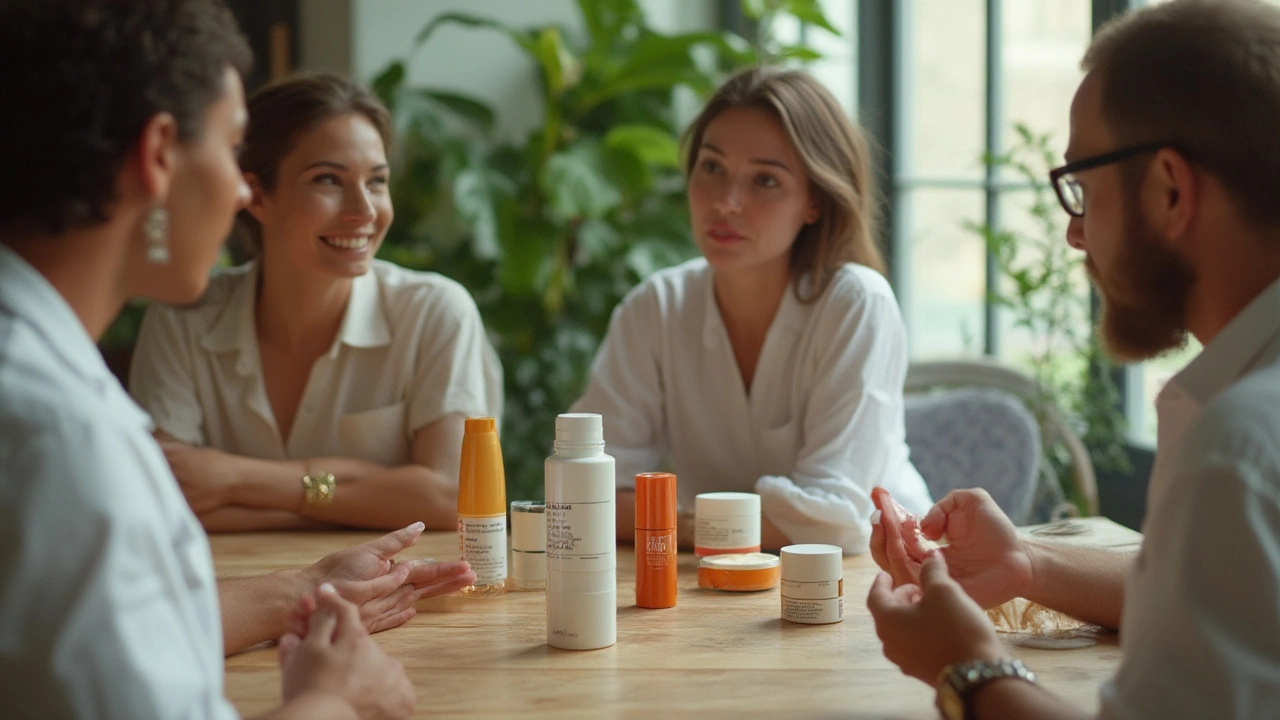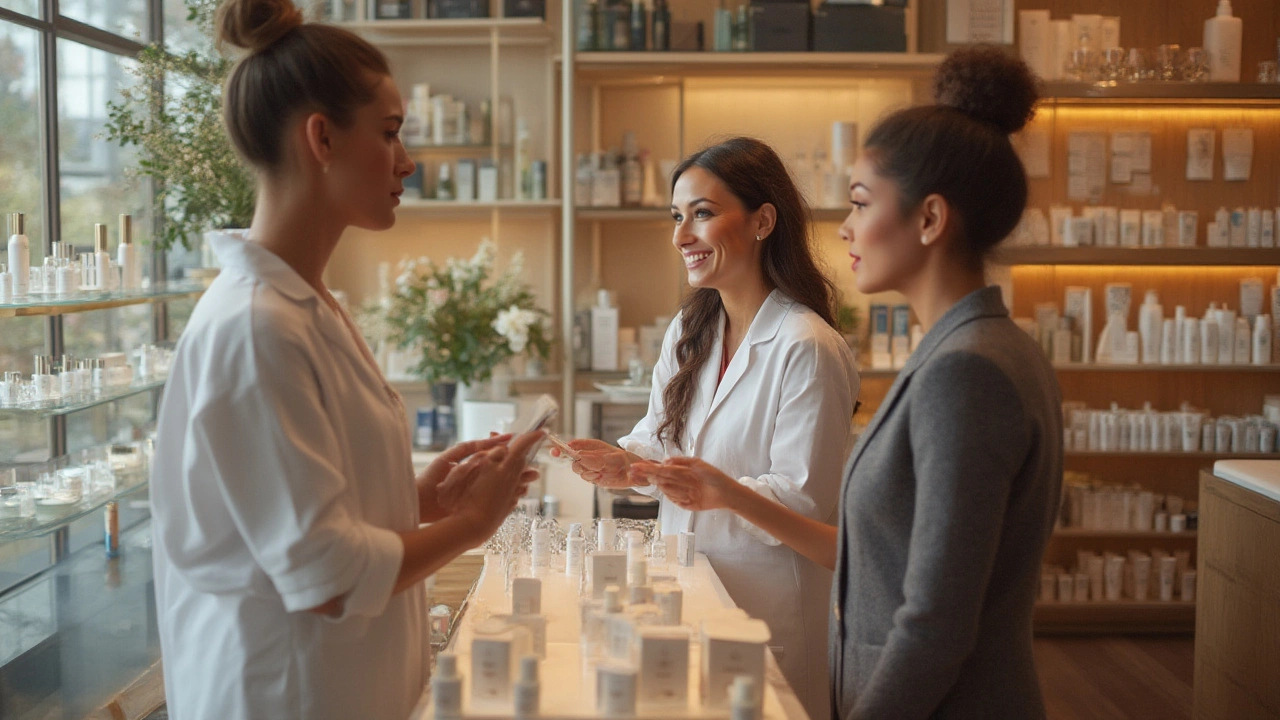Ever stand in a beauty aisle feeling totally lost, every brand shouting about miracles in a jar? Trust me, you’re not alone. The truth is, there’s no one-size-fits-all answer for the best skin care brand in the world. We spend billions—$186 billion globally as of last year—on face creams, serums, and cleansers, hoping we’ll finally find that magic formula. But the science, the stories behind the labels, and honest reviews tell a different tale. What makes a brand really stand out? It isn’t just the celebrity endorsements or fancy packaging. Instead, it’s about a mix of genuine results, innovation, safety, ethics, and whether the products actually make people’s skin better over time. I’ve spent years trying top brands myself (my golden retriever Max has endured many late-night product tests… mostly sniffing droppers), reading studies, and soaking up every fragment of skincare advice from dermatologists worldwide. Let’s pull back the curtain on the best skin care brands and uncover some surprising facts you can actually use.
The Science Behind Great Skincare Brands
If you’ve ever wondered why some brands earn unwavering devotion while others fade from memory, you’ve got to look at the science. Not every jar or tube is created equal. Some brands lead the way in skin research and pile hefty budgets into science-backed ingredients. Brands like SkinCeuticals, La Roche-Posay, and Paula’s Choice don’t just sell you hope in a bottle—they’ve built reputations on peer-reviewed research and rigorous clinical trials.
You might be shocked to learn the U.S. FDA only bans about 11 ingredients in cosmetics. The European Union? They ban over 1,300. That’s why many skincare experts prefer brands that adopt stricter standards, regardless of where they’re sold. For example, French pharmacy brands like Bioderma and La Roche-Posay are legendary among dermatologists, especially for sensitive skin. They spend millions every year researching formulas that work without causing irritation.
Do pricier brands always mean high-impact results? According to a 2024 study published in the Journal of Dermatological Science, the answer is usually no. The study compared luxury skincare brands and popular drugstore options, finding the real difference lies in active ingredients and proper formulation—not the price tag or influencer hype.
Some of the powerhouse ingredients to look for include:
- Vitamin C (ascorbic acid) – promotes collagen and evens tone
- Retinol (Vitamin A derivative) – reduces fine lines and acne
- Niacinamide (Vitamin B3) – soothes irritation and boosts barrier repair
- Hyaluronic acid – deep hydration in every drop
- SPF (zinc oxide, titanium dioxide, etc.) – shields against sun damage
Some brands, like The Ordinary, exploded thanks to transparent labels and affordable, effective actives. Others, like CeraVe, have a cult following among dermatologists for using simple, ceramide-focused science. If you dig into ingredient lists instead of slogans, you’ll find what actually fuels results—think science first, hype second.

Global Favorites: Brands That Changed the Game
Skincare is a global obsession, and certain brands keep winning over every generation, regardless of geography. French brands dominate for sensitive routines—Vichy, Bioderma, and Embryolisse have icon status in Parisian pharmacies. Japanese brands like Shiseido and Hada Labo are adored for their minimalist formulas and long-lasting hydration, thanks to years of research into gentle ingredients. K-Beauty took over in the 2010s with affordable innovation. Brands like COSRX, Laneige, and Dr. Jart+ make sheet masks, snail mucin serums, and lightweight essences pop up on bathroom shelves from Seoul to Seattle.
Here’s a quick look at a few heavy hitters and what they’re best known for:
| Brand | Country | Best Known For |
|---|---|---|
| La Roche-Posay | France | Soothing formulas for delicate skin, especially sunscreens |
| CeraVe | USA | Ceramide-rich cleansers and moisturizers, affordable and dermatologist-approved |
| Shiseido | Japan | Advanced anti-aging research, lightweight textures |
| COSRX | South Korea | Minimal, gentle ingredients—famous for their Snail Mucin Essence |
| SkinCeuticals | USA | Science-backed serums rooted in clinical research |
People love these brands, not just for marketing. La Roche-Posay’s Anthelios sunscreen is a consistent dermatologist favorite for its broad spectrum UV protection and non-irritating finish. Meanwhile, CeraVe’s cleansers and moisturizers often top Reddit and TikTok best-of lists because they just quietly do their job—especially for acne or eczema-prone folks. In Japan, Hada Labo’s Gokujyun Lotion (spoiler: it isn’t a lotion, it’s a super-light hydrating liquid) sells every few seconds. And Korean companies constantly push boundaries, creating new formulas and textures that make skincare fun instead of a chore.
The past five years have seen a jump in vegan, cruelty-free, and sustainability-focused brands. Pai Skincare, Youth to the People, and Herbivore have made waves thanks to ingredient transparency and eco-friendly packaging. Some products even skip water, aiming to help with global conservation efforts. If you care about ethical choices, check for certifications like Leaping Bunny (cruelty-free), COSMOS (organic/natural), and check whether packaging is recyclable or compostable.
The brand that’s best for you might not be the one your best friend swears by. For example, my sensitive, easily-spooked skin cries out for fragrance-free and simple formulas, while my sister loves layered, active-packed routines that glow by morning. The trick is knowing what your skin truly needs—sometimes less is more, especially if you’re fighting irritation, allergies, or acne.

Choosing the Best Brand—And Tips You’ll Actually Use
Does a trophy sit somewhere for the absolute best skin care brand? If so, no one’s handed it out yet. The real secret: The best skin care brand is the one that matches your skin’s unique needs, fits your budget, and actually makes you want to stick to your routine. Sounds simple, but it takes detective work to find your winner.
If you’re overwhelmed, start by figuring out your skin type: oily, dry, combination, or sensitive. That will narrow down product choices more than any brand name ever could. Patch test new products (try them on a small spot behind your ear for three days) before slathering all over your face. Watch for sneaky irritants, especially if you have allergies—common triggers include fragrance, certain essential oils, and harsh alcohols.
The basic, science-backed routine looks like this:
- Gentle cleanser
- Moisturizer packed with ceramides, hyaluronic acid, or squalane
- Daily broad-spectrum sunscreen (SPF 30+), rain or shine
Extras like serums (think Vitamin C in the morning, retinol at night), chemical exfoliants (like AHAs/BHAs), and masks only help if your basics are already working. And if you’re itching to try something new, sample sizes are your best friend. Your skin, like your favorite pair of jeans, needs a good fit over a famous name.
Let’s be honest for a minute—no product will fix every skin problem overnight. “Miracle in a jar” promises usually end in frustration. The most proven changes come from steady routines, not switching brands every month. Dermatologists love brands like Cetaphil, Vanicream, and Eucerin because they focus on barrier repair without extra frills, proving that sometimes boring is actually better.
If you’re curious about how top brands stack up, here’s a quick breakdown of popular product types from best-selling brands:
| Product Type | Hero Ingredient | Top-Rated Brand Example |
|---|---|---|
| Cleanser | Ceramides | CeraVe Hydrating Cleanser |
| Moisturizer | Glycerin, Squalane | The Ordinary Natural Moisturizing Factors + HA |
| Serum | Vitamin C, Hyaluronic Acid | SkinCeuticals C E Ferulic |
| Sunscreen | Zinc Oxide | La Roche-Posay Anthelios Melt-in Milk SPF 60 |
| Exfoliant | Salicylic Acid | Paula’s Choice 2% BHA Liquid |
Don’t forget the power of price hacks. Drugstore brands—especially CeraVe, Aveeno, and some Neutrogena classics—give high-end results for less. Look for fragrance-free versions if your skin is prone to irritation, or unlabeled “for sensitive skin” if you’re unsure.
If you want to geek out, download ingredient tracking apps that flag red-flag substances or let you search by skin concerns. And if a product makes your skin tingle, itch, or break out, don’t push through the pain—ditch it and move on. Red, angry skin never looks healthy.
Here’s a last truth bomb: skin needs more than bottles and tubs. Sleep, stress, sun, and your diet shape your glow as much as serums do. And something as simple as washing pillowcases regularly, keeping your phone clean, and not touching your face can make more of a difference than the latest trending product.
Everyone wants a top pick, so here it is: the most universally recommended, science-powered brand right now is CeraVe. Praised by skincare nerds, regular folks, and dermatologists alike, it gets the basics so right, your skin will thank you. But don’t be afraid to search until you find the brand that feels made for you—and ignore the pressure to buy what’s viral if it doesn’t. In the end, your skin, your rules. That’s real beauty.
